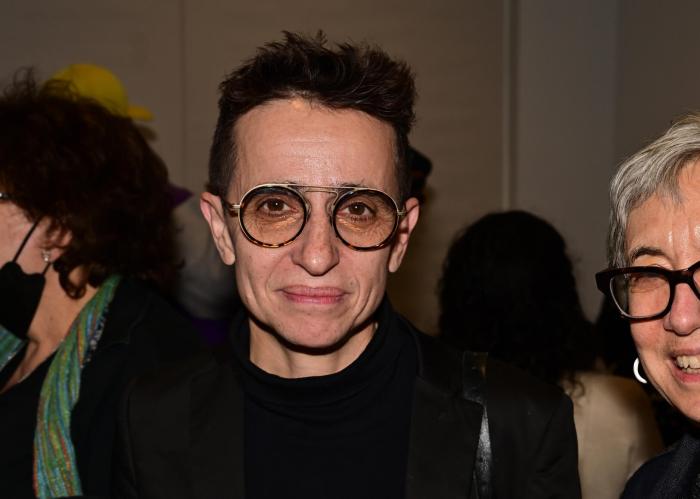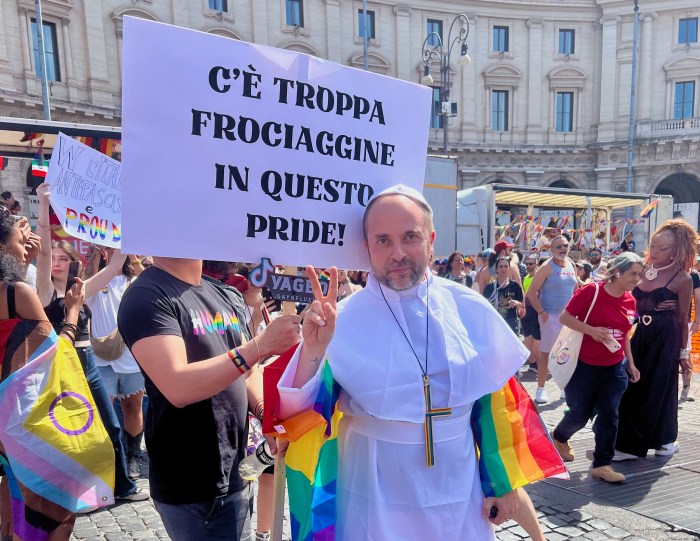BY ARTHUR LEONARD | The High Court in Dublin has ruled that an Irish same-sex couple married in Canada is not entitled to legal recognition for that union under the tax laws of the Irish Republic. The December 15 decision by Justice Elizabeth Dunne turned largely on her view that the 1937 Constitution should be interpreted according to the meaning its drafters would have intended, which cannot seriously be argued to include same-sex marriage.
Katherine Zappone and Ann Louise Gilligan were married in Vancouver, British Columbia, in September 2003 and when they returned home to Ireland sought a declaration that their marriage was valid and recognized there. The Registrar General's office replied that its authority “does not extend to making a declaration on the validity of marriages that occur outside the State,” insisting that it was a question for the courts.
The couple's attorney also wrote to the Revenue Commissioners, seeking a determination that they would be treated as a married couple under the tax laws. Tax law does not define marriage or specify the parties to a marriage, so the Commissioners looked to the dictionary and declared that Zappone and Gilligan could not be treated as a married couple.
The couple was granted the right of judicial review of this ruling by the High Court in November 2004, but the case was not heard before Justice Dunne until October 3 of this year.
Dunne's very lengthy written opinion consists largely of a detailed description of all the evidence and arguments offered by the plaintiffs and the government, with only a few pages at the end of a 100-plus-page decision giving the conclusions of the court. The presentations to the court were clearly exhaustive and international in scope, ranging over opinions from many jurisdictions-including the United States-and including expert testimony on the parenting abilities of gay people, since the plaintiffs anticipated that the government would use a procreation argument in its case.
In the end, the case essentially boiled down to Dunne's unwillingness to abandon her concept of original intent. As well, she was influenced by the fact that marriage equality has achieved only halting progress worldwide.
While acknowledging the idea that a constitution is a “living instrument” that must be interpreted in light of the times, she rejected the plaintiffs' argument that there had been sufficient social change to support the conclusion that a social “consensus” now exists in favor of same-sex marriage. While noting the persuasive force of the Massachusetts Supreme Judicial Court's 2003 marriage decision, for example, Dunne observed, “It is clear that the judgment of the majority in the Goodridge case has not found wide favour. Indeed since that judgment a number of other States have come to a different conclusion, most recently, the court in the Californian case of Woo v. Lockyer.”
“I have a difficulty in this case in accepting the arguments of the plaintiffs to the effect that the definition of marriage as understood in 1937 requires to be reconsidered in the light of now prevailing standards and conditions,” she went on. “Marriage was understood under the 1937 Constitution to be confined to persons of the opposite sex. That has been reiterated in a number of the decisions which have already been referred to,” she pointed out, noting that some of those decisions were of recent vintage, as was a 2004 statute expressly endorsing an opposite-sex definition of marriage.
“I do not see how marriage can be redefined by the Court to encompass same-sex marriage, “she wrote. “The Plaintiffs referred frequently in the course of this case to the 'changing consensus' but I have to say that there is little evidence of that. The consensus around the world does not support a widespread move towards same sex marriage. There has been some limited support for the concept of same-sex marriage as in Canada, Massachusetts, and South Africa together with the three European countries previously referred to [The Netherlands, Belgium, and Spain] but, in truth, it is difficult to see that as a consensus, changing or otherwise.”
Dunne emphasized that the plaintiffs had not directly challenged the constitutionality of the 2004 law-the Civil Registration Act-which embraced the explicit opposite-sex marriage definition.
Dunne concluded that if there was a right to marry, it was derived from the Constitution, and given the original understanding of marriage of that document's drafters, then the right must be a “right to opposite sex marriage.” She reiterated that the plaintiffs had conceded that tax officials treated them no differently from unmarried opposite-sex couples.
Dunne also rejected a secondary argument from the plaintiffs that Ireland's refusal to recognize the marriage violates the European Convention on Human Rights. The European Court of Human Rights has ruled that transsexuals have a right to marry a person of the opposite sex from their own acquired gender, but for Dunne, this was not an endorsement of marriage rights for same-sex couples. The Court has not directly ruled that same-sex couples are entitled to marry as part of the respect for private life the European Convention guarantees.
Dunne expressed empathy for the problems encountered by same-sex couples, writing, “It is to be hoped that the legislative changes to ameliorate these difficulties will not be long in coming.”
Since the High Court was sitting in this case as a trial court, the possibility of appeal exists, though the plaintiffs' plans are not yet known.


































